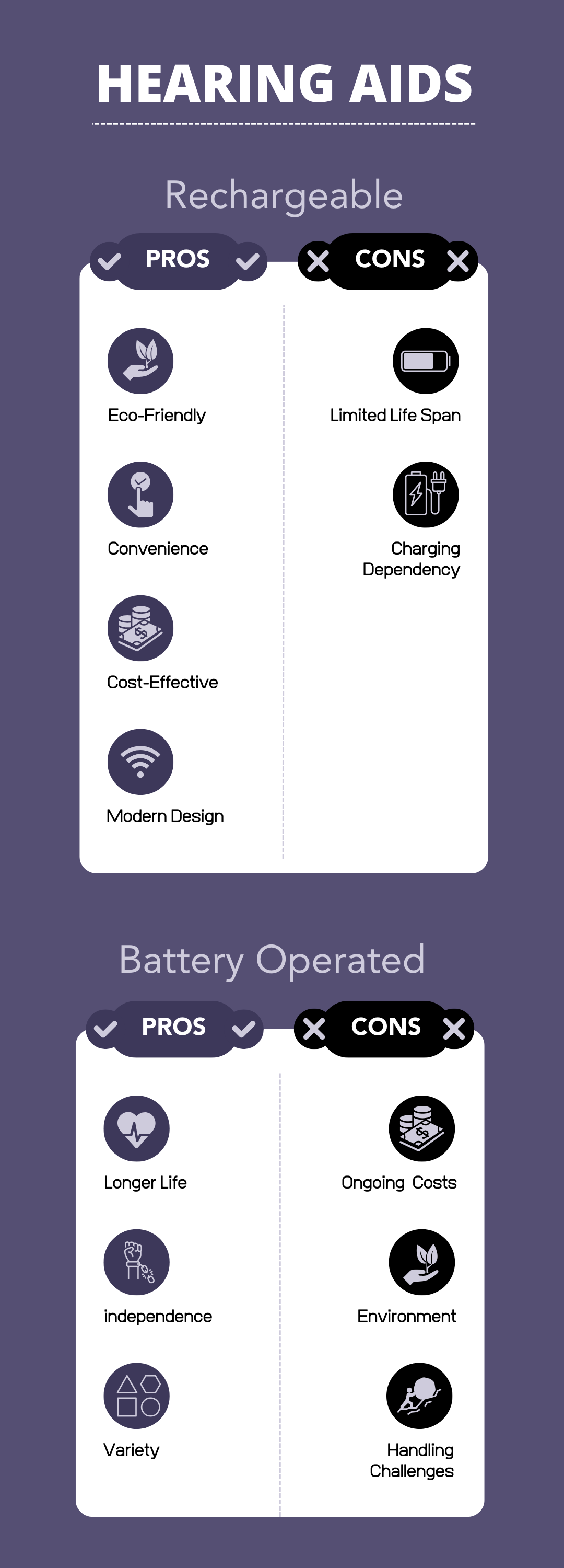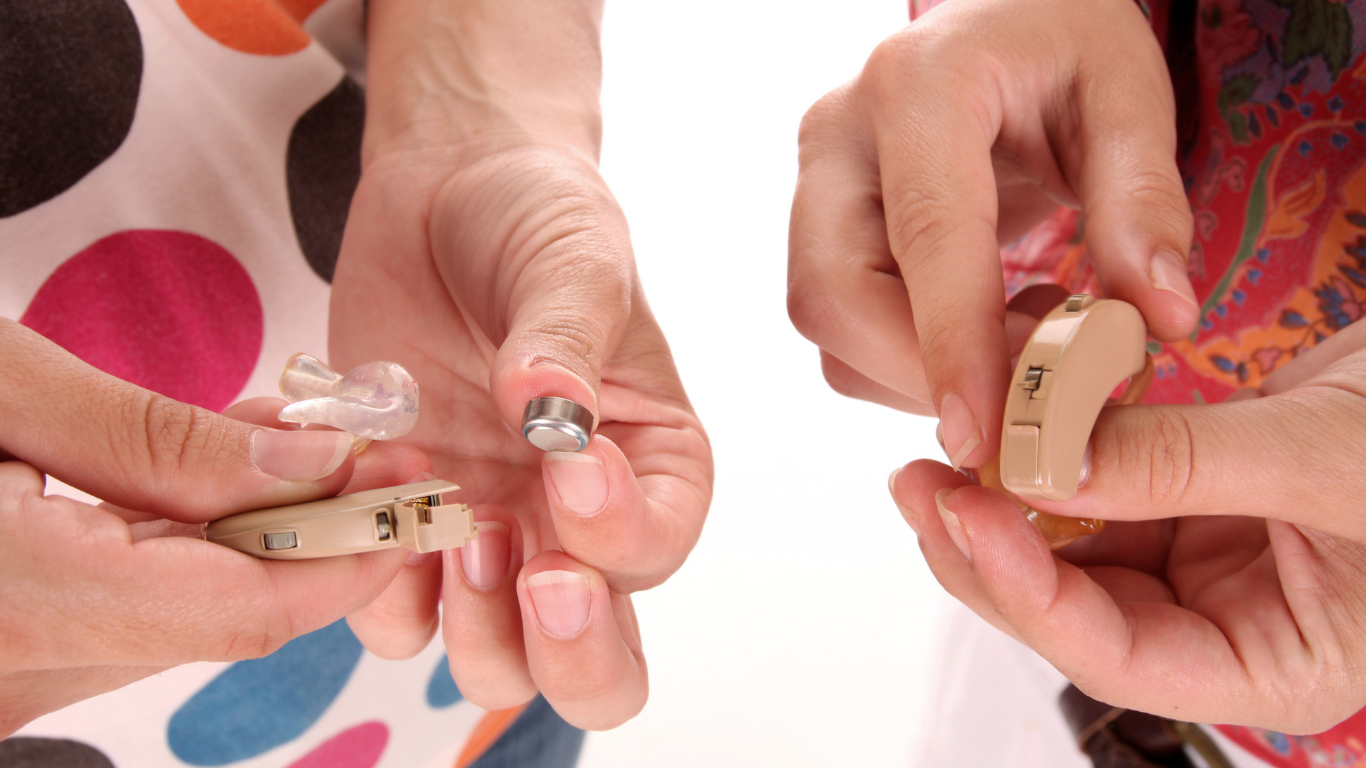Welcome to Our Blog
by: Alissa Horneland, BC-HIS
The Rechargeable vs. Battery-Operated Hearing Aid Dilemma: Pros and Cons
At Frequency Hearing, we understand that choosing the right hearing aid is a deeply personal decision. It's not just about regaining your hearing; it's about improving your quality of life. One of the fundamental choices you'll face when selecting a hearing aid is whether to opt for rechargeable or battery-operated models. Let's explore the pros and cons of each, so you can make an informed decision that suits your unique needs.
Rechargeable Hearing Aids
PROS
Eco-Friendly: Rechargeable hearing aids are better for the environment as they reduce battery waste. Fewer disposable batteries mean less environmental impact.
Convenience: No more fumbling with small batteries. With rechargeable aids, you can simply place them in a charger overnight, ensuring they're ready to go every morning.
Cost-Effective: While rechargeable hearing aids typically have a higher upfront cost, they can save you money in the long run. You won't need to purchase batteries regularly.
Modern Design: Many users appreciate the sleek and compact design of rechargeable hearing aids. They often have fewer visible parts, making them more discreet.
CONS
Limited Lifespan: Rechargeable batteries have a finite lifespan, typically lasting 3-5 years. After this period, you may need to replace the entire hearing aid, which can be costly.
Charging Dependency: You must remember to charge your hearing aids regularly. Forgetting to charge them can leave you without sound when you need it most.
Battery-Operated Hearing Aids
PROS
Longer Lifespan: Traditional battery-operated hearing aids can last 5-14 days on a single battery, depending on usage. Replacing batteries is simple and cost-effective.
Independence: You're not reliant on a charger or power source. Simply carry spare batteries with you, and you're good to go, even during extended travel or power outages.
Variety: Battery-operated aids come in a wide range of styles, including behind-the-ear (BTE) and in-the-ear (ITE) models, providing more options to suit your preferences.
CONS
Ongoing Costs: While individual batteries may be inexpensive, the cumulative cost of purchasing batteries over time can add up.
Environmental Impact: The disposal of used batteries contributes to environmental waste, and constant replacements can be less eco-friendly.
Handling Challenges: Changing small hearing aid batteries can be tricky for those with dexterity issues, as they are quite small and require precision.
The choice between rechargeable and battery-operated hearing aids ultimately depends on your lifestyle, preferences, and priorities. At Frequency Hearing, we recommend discussing your options with our experienced audiologists, who can help tailor a solution that suits your unique needs.
Whichever path you choose, rest assured that our team is here to support you on your journey to better hearing. Your comfort and well-being are our top priorities, and we're committed to helping you find the perfect hearing aid solution that fits seamlessly into your life. Don't hesitate to reach out to us for guidance and expert advice.











